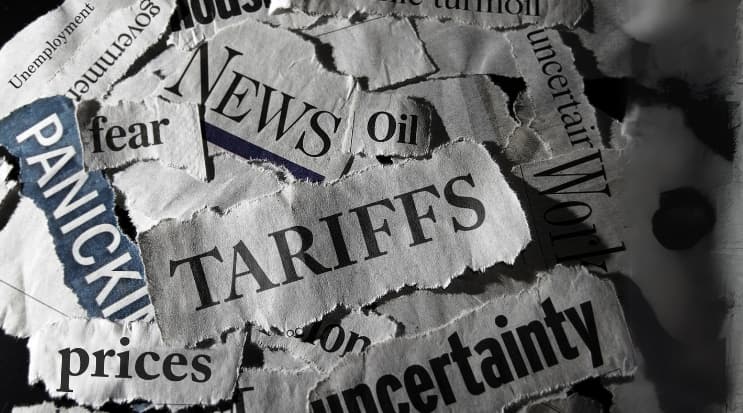
Trump’s Tariff Policy: What It Means for the UAE’s Future in Global Trade
New tariffs imposed by former U.S. President Donald Trump could challenge the UAE’s trade dynamics, affecting markets, sectors, and global business strategies.
Taking effect just three days later on April 5, these measures have sent ripples through international markets.
President Trump enacted these measures under the International Emergency Economic Powers Act (IEEPA), declaring a "national emergency" to address what the administration characterizes as economic threats to U.S. interests. Notably, these tariffs override existing Free Trade Agreements, with the sole exception of the United States–Mexico–Canada Agreement (USMCA), which remains exempt.
The executive order establishes a baseline 10% tariff on imports from all countries, including the UAE and other Gulf Cooperation Council (GCC) members such as Saudi Arabia, Oman, and Qatar. Certain categories remain exempt, including energy products, specific minerals unavailable in the U.S., and items already subject to other tariffs (such as steel and aluminum).
The market response has been worrying, to say the least. Stock markets across the Middle East, including those in Dubai and Abu Dhabi, saw steep declines right after the tariff announcement. Investors are clearly uneasy, with many fearing that this could lead to trade wars or trigger a global economic slowdown. Adding to the stress, oil prices also took a hit. In just five days, Brent crude plummeted nearly 15%, dropping to around $64 (AED 235) per barrel—30% lower than last year. For the UAE and other Gulf economies, this drop in oil prices is particularly troubling, as energy exports still play a key role in their financial health, even as they work towards diversifying their economies.
The UAE's real estate sector, still recovering from the pandemic, might face some fresh hurdles thanks to these new tariffs. With construction materials from the U.S. set to get steeper, development costs could rise, putting additional strain on the sector. Moreover, if the global economy takes a hit from growing trade tensions, international demand for UAE property might dip. However, there’s a potential silver lining. As businesses look for ways to bypass the U.S. tariffs, the UAE’s prime location and business-friendly free zones could become even more appealing, attracting companies eager to set up new production and distribution hubs.
The UAE’s role as a key transit point and re-export hub could become even more crucial. As businesses look for ways around direct tariffs, they may increasingly turn to Dubai and other UAE free zones to process and redistribute goods, avoiding the impact of tariffs on their final destination markets.
The UAE's growing financial sector could experience mixed effects. While market volatility presents challenges, the emirate's status as a regional financial center might strengthen if businesses seek banking and financial services outside markets directly affected by trade tensions.
UAE businesses are advised to take several proactive steps:
-
Supply Chain Evaluation: Companies should assess their exposure to U.S. markets and identify alternative sourcing or distribution channels where necessary.
-
Compliance Strategies: Businesses must ensure proper classification of goods to accurately determine tariff liabilities and identify potential exemptions.
-
Market Diversification: Reducing dependence on U.S. markets by exploring opportunities in Asia, Africa, and other regions could provide resilience against trade policy shifts.
-
Free Zone Utilization: The UAE's network of free zones offers strategic advantages for companies restructuring their global operations in response to changing trade patterns.
The Trump administration has made it clear that these tariffs will stay in place until the U.S. is satisfied with trade imbalances and what it sees as “nonreciprocal trade practices.” This leaves a lot of uncertainty around how long these measures will last.
For the UAE, it will be crucial to maintain strong diplomatic ties with the U.S. while also building stronger trade connections with other global partners. The country's ongoing efforts to diversify its economy may take on even greater importance now, as external trade pressures highlight the need for more domestic resilience.
While the immediate 10% tariff on UAE exports to the U.S. may be manageable, the ripple effects—like market instability, the risk of a global recession, reduced energy demand, and disruptions to supply chains—pose more complex challenges that will need to be closely watched and strategically handled in the coming months.
As the situation develops, UAE businesses, investors, and policymakers will need to stay alert, adaptable, and proactive in adjusting to this evolving economic landscape.
For any enquiries or information, contact info@thelawreporters.com or call us on +971 52 644 3004. Follow The Law Reporters on WhatsApp Channels